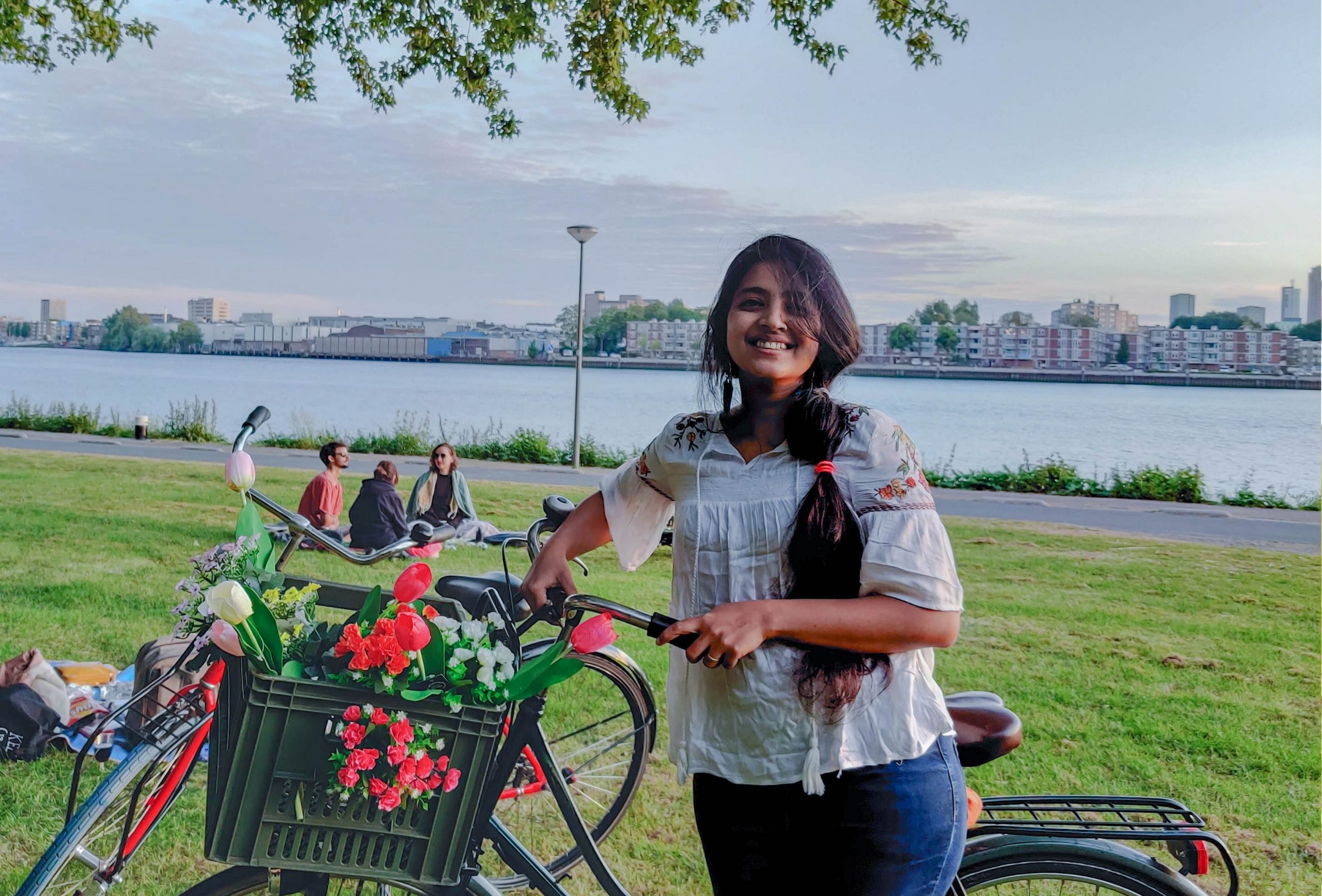Doing a Go/No-go presentation online was a learning experience for PhD candidate Supriya Krishnan. So, she compiled a list of tips that might be helpful for others.
Supriya Krishnan: “As a PhD, the limited interaction you had before is minimised even further during a lockdown.” (Photo: Snehal)
“I have a background in architecture and urban planning. So I take my working space very seriously and it has a direct impact on how I work and the quality of my outputs. Now I’m a researcher at the Faculty of Technology, Policy and Management in the Multi-Actor Systems group which offers a really nice work environment. I combine some of their quantitative modelling techniques with more qualitative urban planning and design methods. My focus is on developing urban planning methods for long-term climate uncertainties, like over the next 50 to 100 years.
When the lockdown started in March, I was at the end of my first year of PhD. That means I had to do my Go/No-go meeting online. We talked about the idea of postponing to a later date, but then it was like what later date? Now it’s June and we’re still not really back to normal. So, it was a good thing we decided to go ahead with the original plan. My supervisor Nazli and promotor Tina were very helpful in making this a smooth process and coordinating all revisions online. They helped to reduce the stress for me.
‘I didn’t appreciate my free time anymore’
Since I was one of the first people to do a defence online, a few colleagues and friends started reaching out to me for tips and experiences. When you talk to a screen you miss out on a lot of physical cues, like sometimes you freeze or you can’t see body language. You might be talking to 20 people and you don’t really know if anybody is listening to you. In addition, there are several small practical details like checking if your Wi-Fi settings are correct, or sometimes you might be connected to your neighbour’s Wi-Fi and your call gets cut off. Making sure you have a LAN cable. Checking your background. Checking if you have your slides backed up. Sometimes you are just searching and fumbling for things while you are talking. The choice of what video calling tool you use also matters.
I was writing so much, answering questions and chats, that I started to organise it. At the same time, my partner was also interviewing for faculty positions which are much longer and strenuous to do online so you really have to be on top of your logistics. He also did a fair bit of homework and helped compile this list of tips as a checklist for himself. Thus emerged a checklist of tweaks for your work space just to help you have a smooth interview or meeting experience. I put it on my personal page and started sending the link around and now it’s evolving each day with more feedback from other people using it. It really isn’t rocket science, but just a ready reckoner for small things that we often take for granted. Details certainly enhance the big picture.
If you’re doing more desk research, if most of your work is via computer then there’s a lot you can do to make things efficient and more importantly, comfortable for yourself. I think a PhD is a lonely process anyway, because most of it demands focused, solitary work. You do not talk constantly, so the limited interaction you had before is minimised even further during a lockdown.
But having said that, it’s about self-regulation. After my committee exam I felt that I had a slump because I didn’t appreciate my free time anymore. It was all a mental mess. In the office, breaks happen organically. But at home it’s about leaving your desk space and moving into a recreational space. This quality of space matters and a little thought can go a long way. Of course, now after 100 days of working at home, I feel more seasoned. But I can say that I will be most happy to go back to my office at the Department when we can. I do miss my space and my colleagues.”
- In this special series, Delta takes a personal look at how Covid-19 and the lockdown have impacted the people who work or study at TU Delft. Want to be featured in this series? Or do you know someone with a good story to tell? Send us an e-mail at humansoftudelft@gmail.com
Heather Montague / Freelance writer



Comments are closed.